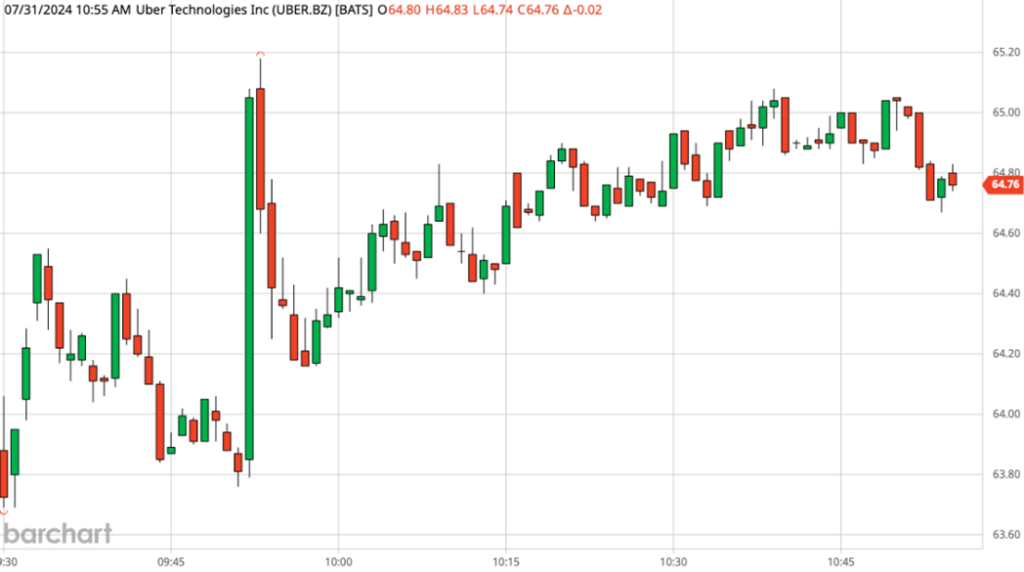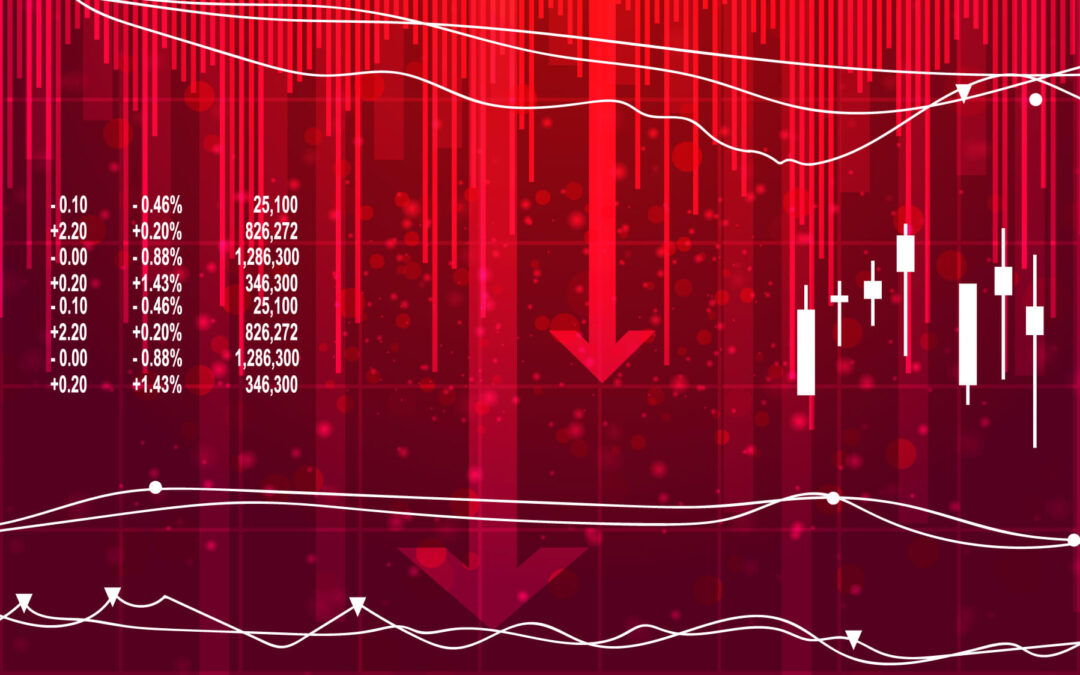Money & Markets Daily: The 5
It’s impossible to keep up with everything going on in financial markets and the economy these days. That’s where “The 5” from Money & Markets Daily comes in…
Let’s start your week off right by addressing the only thing that’s likely on your mind this morning…
You Call THIS a “Soft Landing?!”
Stocks were down sharply on this morning’s open, with the Dow Jones Industrial Average down by 1,000 points and the Nasdaq plunging to levels not seen since May.
The biggest fear for American investors is that the U.S. Federal Reserve has prolonged rate-cutting too long, putting the U.S. economy behind the eight ball.
Friday’s jobs report is being blamed for Friday’s sell-off, but keeping rates “higher for longer” has sparked thoughts that a September rate cut is too little, too late. The Fed may have botched its “soft landing” aspirations here.
But Money & Markets Chief Analyst Matt Clark urges caution for investors who might suddenly feel the urge to sell:
“Remember that the biggest losers of this sell-off have been previously skyrocketing tech stocks,” Clark explained. “These stocks have soared to trade at huge ratios, and traders seem to be switching to more ‘risk-off’ with this latest data point on the economy.”
The Money & Markets team will keep a close eye on the sell-off as it progresses this week. Paid-up subscribers should keep their eyes on their inbox for potential trading opportunities in 10X Stocks, Green Zone Fortunes and Max Profit Alert.
The Multibillion-Dollar “Logic Error”
CrowdStrike Holdings Inc. (Nasdaq: CRWD) said a “logic error” was a major cause of a widespread outage that affected Microsoft Windows hosts on July 19.
The company performed an update to its Falcon AI-native security platform.
It caused millions of Microsoft Windows users to start their day with the “blue screen of death,” which indicates a system crash.
Last week, Delta Air Lines Inc. (NYSE: DAL) CEO Ed Bastian said the crash would cost the carrier $500 million in lost revenue due to canceled flights nationwide.
The more significant cost came to CRWD’s share price, which dropped more than 12% from Friday (the day of the crash) to the following Monday.
A week after the crash, CRWD’s stock continued its freefall … shedding more than 15%. It didn’t stop there, with CRWD down more than 20% from July 19 to last Friday.
In a recent issue of The 5, Matt Clark suggested the outage would push companies to evaluate their cybersecurity plans. Well, Crowdstrike competitor SentenelOne (NYSE: S) was up 5% a week after the crash and continues to outperform Crowdstrike.
For The Record: CrowdStrike stock rates a “Bearish” 28 out of 100 on Adam’s Green Zone Power Ratings system. Just two months ago, the stock rated a “Neutral” 54. It looks like the downward trend is in…
It’s Electric … Boogie Woogie Woogie
The electric vehicle market got a shot in the arm last Wednesday when Uber Technologies Inc. (NYSE: UBER) announced a partnership with Chinese EV maker BYD Company ADR (OTC: BYDDY).
Under the partnership’s terms, Uber will add 100,000 BYD-made EVs to its ride-sharing platform over the next several years … except in the U.S.
Uber and BYD will offer drivers lower vehicle prices and financing to help facilitate putting more EVs on the road.
The partnership will start in Europe and Latin America and then expand to the Middle East, Canada, Australia and New Zealand.
Why not the U.S.? Glad you asked…
- The Biden Administration has pledged to increase tariffs on Chinese-made EVs to 102.5%, making it nearly impossible to import BYD vehicles.
- Car rental company Hertz Global Holdings Inc. (Nasdaq: HTZ) dipped its toe in the market by offering perks to drivers renting Teslas. The result: Hertz has been selling off its EV fleet, citing the cost of maintaining it.
The announcement did help one thing: UBER’s share price:

UBER stock jumped 2.6% in the first hour and a half after the announcement on Wednesday. However, gains may be short-lived, as the stock has fallen 13% since Thursday’s open amid the broader market sell-off.
There’s a long way to go before this new partnership bears any fruit for UBER.
As of the end of the first quarter 2024, only 8.2% of Uber trip miles were made in zero-emission vehicles in the U.S. and Canada. In Europe, it was only 9%.
Boeing My Way
It’s been an awful year for American aerospace giant Boeing Co. (NYSE: BA).
Confidence issues with airline customers over delayed deliveries, issues with U.S. regulators, labor fights and sluggish sales — the company recently reported a 15% drop in sales for the recent quarter.
In an attempt to stop the bleeding, Boeing looked outside the company on its hunt for a new CEO and went with someone with more than 30 years of aerospace experience.
Robert “Kelly” Ortberg will replace Dave Calhoun at the helm of Boeing on August 8 with an eye toward returning the company to its former glory.
Ortberg was previously the CEO of Rockwell Collins Inc., an avionics and information technology company that is now part of RTX Corp. (NYSE: RTX).
Once again, we turned to Matt Clark, whose grandfather used to work for Boeing and is a Wichita native, and asked what his thoughts were on Ortberg’s hiring. Here’s what he had to say:
I think Boeing is conveying a strong message by choosing someone “outside the family” for its new leader. Someone who hopefully brings a fresh set of eyes to a company that’s fallen on hard times.
The good thing is that he’s only an outsider to Boeing, not the industry. His nearly 30 years of experience in the aerospace industry gives him the tools to start righting the ship.
Overall, I am cautiously optimistic that Ortberg, given time, will do just that.
After Ortberg was named the new CEO, BA stock jumped 3.4% in Wednesday morning trading, but it has also failed to avoid the sell-off. Since Thursday’s open, BA stock is down 13%.
The People Have Spoken! Is NBC Listening?
In a world where it feels like we can’t even agree that the sky is blue, one thing is clear…
Last week, we asked you in a Money & Markets Daily poll whether streaming platform Peacock should make an exception and offer the Olympics for free.
The vast majority of you (93%) said the Olympics should be free for all to watch.
But don’t hold your breath for a change when the world’s games come to Los Angeles in 2028.
NBCUniversal and parent company Comcast say that 28.6 million people tuned in for the opening ceremony, the most since London 2012.
The company also reported record-breaking ad revenue — north of the $1.25 billion it brought in during the 2020 Tokyo Games — across its various broadcasting channels, including Peacock. This counts as a big win for a smaller streaming platform that’s been fighting to carve out its niche.
We’ll keep an eye out for Comcast Corp.’s (Nasdaq: CMCSA) earnings report in October for any signs that its Peacock paywall was a success.
But with viewership numbers like that … don’t expect NBC to change its ways — even when the games come back to our home turf.
— Money & Markets Team




